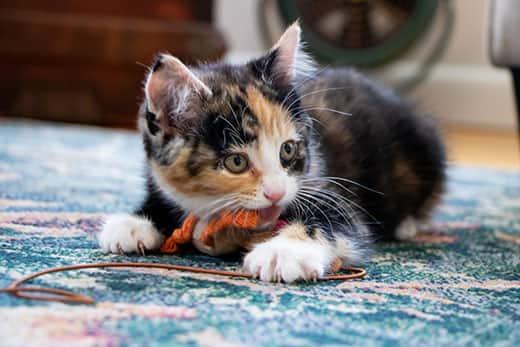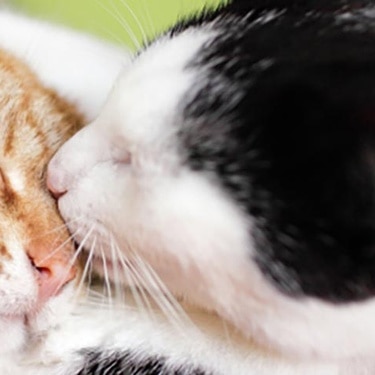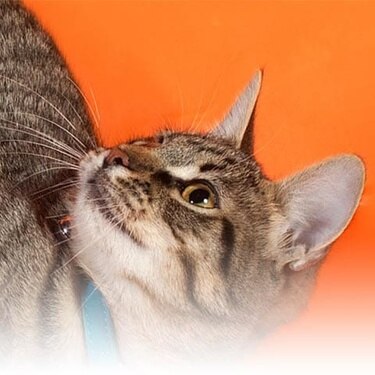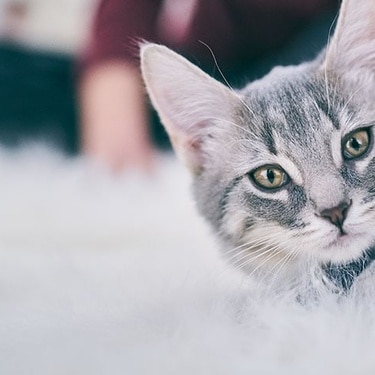
-
Find the right food for your petTake this quiz to see which food may be the best for your furry friend.Find the right food for your petTake this quiz to see which food may be the best for your furry friend.Health CategoryFeatured products
 Healthy Mobility Large Breed Chicken Meal, Barley & Brown Rice Recipe Dog Food
Healthy Mobility Large Breed Chicken Meal, Barley & Brown Rice Recipe Dog FoodAdvanced nutrition shown to support joint health and improve mobility
Shop Now Adult Perfect Weight & Joint Support Chicken & Brown Rice Recipe Dog Food
Adult Perfect Weight & Joint Support Chicken & Brown Rice Recipe Dog FoodThis weight management and mobility support dog food was created with Hill’s unique understanding of the biology of overweight dogs.
Shop Now Adult 6+ Large Breed Chicken Meal, Barley & Rice Recipe Dog Food
Adult 6+ Large Breed Chicken Meal, Barley & Rice Recipe Dog FoodSupports energy level, joint health, and beautiful coat in large breed mature dogs
Shop NowFeatured products Kitten with Salmon
Kitten with SalmonPrecisely balanced nutrition with the delicious taste of minced salmon to help build immunity and a healthy digestive system
Shop Now Adult Indoor Savory Chicken Entrée Cat Food
Adult Indoor Savory Chicken Entrée Cat FoodPrecisely balanced nutrition for indoor cats with the delicious taste of savory minced chicken
Shop Now Adult Perfect Weight Salmon & Vegetable
Adult Perfect Weight Salmon & VegetableOver 70% of cats lost weight within 10 weeks when fed this nutrition
Shop Now -
DogCat
- Cat Tips & Articles
-
Health Category
- Weight
- Skin & Food Sensitivities
- Urinary
- Digestive
- Kidney
- Dental
- Serious Illness
-
Life Stage
- Kitten Nutrition
- Adult Nutrition
Featured articles The Right Diet For Your Pet
The Right Diet For Your PetLearn what to look for in healthy pet food & nutrition, including ingredients, quality of the manufacturer, your pet's age, and any special needs they have.
Read More Pet Food Storage Tips
Pet Food Storage TipsWhere you store your cat and dog food can make a big difference in the quality and freshness once it is opened. Here are some common questions and recommendations for optimal storage for all of Hill’s dry and canned cat and dog food.
Read More Water
WaterWater is the most important nutrient of all and essential for life. Animals can lose almost all their fat and half their protein and still survive, but if they lose 15% of their water, it will mean death.
Read More -


While it takes years for young humans to lose all their baby teeth and wait for their adult chompers to come in, the kitten teething process moves much faster. In fact, by the time they're 6 months old, cats have already cycled through two sets of teeth.
Kitten Teething: An Age Timeline
A kitten's baby teeth, also known as milk or deciduous teeth, first break through when a cat is about 3 or 4 weeks old. The incisors and primary canines come in first, according to Pet Health Network, with the others following in quick succession.
These baby teeth all fall out by the age of 3 to 4 months, making room for the adult teeth to then pop up. Typically, all adult teeth are in place by the time a kitten is 6 months old. Most adult cats have 26 baby teeth and 30 adult teeth.
What Are the Signs of Kitten Teething?
During the kitten teething process, you may not even know that your feline friend is losing teeth until you see one on the floor or in their bed. This is normal, so don't worry! Most cats swallow their teeny teeth but, again, no need to fret — this doesn't cause any harm to a cat.
You also may notice these commons signs of kitten teething:
- Decreased appetite
- Excessive chewing
- Sore, red gums
- Slight bleeding of the gums
- Irritability
- Pawing at their mouth
The experts at the Tufts catnip, emphasizes the importance of looking for signs of gingivitis or periodontal disease, such as extremely swollen or bleeding gums and bad breath, as your kitty goes through the teething phase. Occasionally, kittens may have persistent deciduous teeth, meaning that some of their baby teeth did not fall out. This condition is rare but worth keeping an eye out for, as a tooth extraction may be necessary. Consult your veterinarian right away if you notice any of these symptoms so your cat companion can quickly get the treatment they need.


Tasty Tips
How to Help a Teething Kitten
Do kittens teethe with a lot of pain? There's bound to be physical discomfort when pointy teeth are poking through sensitive gums but, according to Greencross Vets, this discomfort is typically minimal.
Your kitten will, however, look for ways to relieve the soreness and irritation associated with teething. They may try to use you as a chew toy, which is never a good idea for either of you. Here, as with other acts of aggressive cat play, redirection is the way to go.

One safe option for a chew toy is a cold wet washcloth, which provides an outlet for excessive chewing and relieves some of the tenderness. Commercially available kitten chew toys are another option, including rubber or soft plastic-based toys that are easy to chew and toys that you can put in the refrigerator. To keep your kitty safe, you should stay with them while they play with it, always follow the toy's directions, keep an eye out for damage and immediately discard damaged toys.
Your kitty may try to chew on furniture legs or electrical cords. This behavior can be damaging to your belongings but, more importantly, may put your cat in harm's way. "To prevent accidental injury from destructive chewing, cover electrical cords and wires with protective plastic covers," advised experts at Your Cat. They also suggest placing double-sided tape on areas you want to protect from your kitten's razor-sharp teeth.
The Importance of Good Oral Hygiene for Kittens
Dental and gum diseases are common in cats but by investing in your kitty's oral health when they're young, you can help prevent some of these issues down the line.
For starters, establishing a dental care routine with regular checkups and teeth brushing — but after the teething cycle, to avoid additional discomfort — may keep health care costs down and issues like gingivitis, periodontitis and tooth resorption at bay. Teething kittens may prefer canned food or kibble soaked in water if their gums are sore. Once they reach adulthood you can consider feeding them cat food formulated to promote good oral health.
Your kitty may not handle the teething process well, so make sure you show them lots of love, support and patience as these new teeth settle in place.


Christine O'Brien is a writer, mom, and long-time cat parent whose two Russian Blues rule the house. Her work also appears in Care.com, What to Expect, and Fit Pregnancy, where she writes about pets, pregnancy, and family life. Find and follow her on Instagram and Twitter @brovelliobrien.
Related products

Over 70% of cats lost weight within 10 weeks when fed this nutrition

Precisely balanced nutrition with the delicious taste of minced salmon to help build immunity and a healthy digestive system

Precisely balanced nutrition for indoor cats with the delicious taste of savory minced chicken

Over 70% of cats lost weight within 10 weeks when fed this nutrition
Related articles

Get helpful information on proper feline oral healthcare and why it's so vital to take care of your cat's teeth.

Being overweight puts a cat at risk for developing many serious health issues. Weight gain indicates an increase in body fat and usually results when your cat eats too much and exercises too little.

As a responsible pet owner you owe it to yourself and your cat to understand problems associated with overweight cats.

HillsPet Nutrition provides information on proper nutrition, fitness and special needs in keeping your cat healthy and happy.

Put your cat on a diet without them knowing
Our low calorie formula helps you control your cat's weight. It's packed with high-quality protein for building lean muscles, and made with purposeful ingredients for a flavorful, nutritious meal. Clinically proven antioxidants, Vitamin C+E, help promote a healthy immune system.
Put your cat on a diet without them knowing
Our low calorie formula helps you control your cat's weight. It's packed with high-quality protein for building lean muscles, and made with purposeful ingredients for a flavorful, nutritious meal. Clinically proven antioxidants, Vitamin C+E, help promote a healthy immune system.

